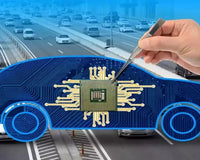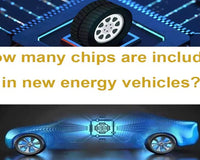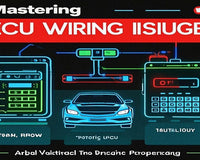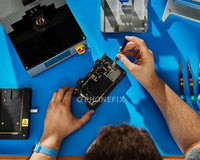Engine Control Unit (ECU) is the brain of your car, responsible for managing various essential functions. However, over time, the ECU may accumulate errors or become outdated, it can lead to a host of problems that affect your vehicle's overall performance and efficiency. ECU repair or reprogramming can enhance your vehicle’s performance by optimising fuel injection, ignition timing, and other critical functions. This can lead to increased horsepower, torque, and overall engine efficiency.
One of the most common indicators of a faulty ECU is poor engine performance. You might notice that your car hesitates during acceleration, misfires, or has a rough idle. These issues can disrupt the smooth operation of your engine, making your driving experience less enjoyable and potentially causing further damage if left unaddressed. XTOOL D9EV Diagnostics Tool is a powerful device that can read and interpret diagnostic trouble codes (DTCs) from your car's ECU. By connecting the tool to your vehicle's OBD-II port, you can quickly identify any issues that the ECU has detected.
Another sign is abnormal fuel consumption. If you find yourself filling up your gas tank more frequently than usual, and there are no other obvious reasons like aggressive driving or a clogged air filter, it could be due to an ECU problem. But if the engine oil is contaminated, it can cause increased friction in the engine, leading to higher operating temperatures. These elevated temperatures can, in turn, affect the ECU's performance and lifespan. Testing your oil regularly with the OT100 Engine Oil Tester can help you detect potential problems early.
Electrical problems can also point to ECU issues. Malfunctions might cause issues with the dashboard lights, power windows, or other electrical components in your car. You could see warning lights flickering or staying on even when there’s no apparent problem with the related systems. In some cases, you might even experience issues with the car's starting system, where the engine fails to turn over or starts and then stalls immediately.
Should the ECU be repaired or replaced?
ECU repair typically involves fixing or reprogramming the existing unit, while ECU replacement involves installing a new unit. If the problem is relatively minor, such as a software glitch that can be fixed with a car repair chip or reprogramming using a car programmer, repair is often a cost-effective option when the ECU is salvageable. However, if the ECU has suffered physical damage, such as from water ingress or a power surge, or if it's an older unit with multiple internal component failures, replacement might be the better choice.
Car Engine Control Unit (ECU) is a vital component of your vehicle’s performance and efficiency. ECU repair and maintenance play a crucial role in ensuring that your car operates at its best, delivering improved performance, fuel efficiency, and emissions control. However, ECU repair and reprogramming require specialized knowledge, tools, and software. It’s recommended to leave these tasks to qualified automotive technicians or specialists.
Is Your Car Acting Up? Signs Your ECU Might Need Repair or Replacement










